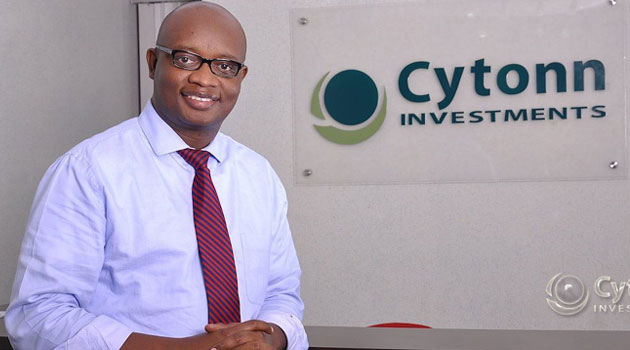
The Chief Executive of Cytonn Investments Management PLC shared his advice on what an investor looks for in a start up.
Cytonn is an investment and real estate company, headquartered in Nairobi that is primarily focused on offering alternative investment solutions to global institutional investors, individual high net-worth investors, local institutional investors and diaspora investors interested in the East-African region. The firm’s alternative investments solutions are based on four main products namely; real estate, structured solutions, private equity, and advisory. Cytonn also has a field office in Washington DC, USA.
The CEO spoke to Peter Theuri of Standard Group
What do you wish every entrepreneur walking into a meeting with a potential investor knew?
That their first impression should leave their financial benefactors enthused. Entrepreneurs should know that they have to make sense to an investor in the first one minute of a conversation to sustain attention of the investor.
What is the difference between a business idea that gets investors interested and one that turns them off?
Is the product or service solving real pain point for society? That is an idea that will definitely interest me. For example, the reason Equity Bank worked was because no bank was serving the unbanked. A new product in the market that promises to solve a real-life problem is an attraction to investors.
Besides the business idea, what else does the investor look for?
There is always the question of whether the entrepreneur has a capable team. An investor will make sure to only fund a venture if the entrepreneur can demonstrate that he has a functioning team that can put the idea to work.
Therefore, it is necessary for an entrepreneur to pick a team capable of pushing the business forward. No investor wants to put his money into what looks like a company playing guesswork.
What makes for a good pitch?
When making a pitch, an entrepreneur should make sure that he has a plan on how business will be executed. This creates investor confidence. Every person putting his money into a venture wants to exactly know how the money will be spent.
As such, the entrepreneur should show exactly what they intend to do to beat the competition and remain relevant, and they should candidly present this information to the investor. Entrepreneurs should show their knowledge of the market and if possible quote their past experiences, complete with how they can navigate terrible times and how they can withstand competition.
They should as well have a solid business plan that outlines procedures to be followed towards reaching their goal.
Does that mean the business needs to have been operational for a while?
This is always best because it means that the entrepreneur has tried his hand in the trade and therefore understands the lows and highs of the market. It also indicates the entrepreneur already has a market base and has something to build on.
Experience in the market not only gives investors’ confidence to put in their money but also helps the entrepreneur manage to make profits in good time and pay back money owed to the investors promptly.
Investors like ideas that have been tried in the market so they know that the entrepreneurs knows exactly what they’re doing. It is therefore imperative for entrepreneurs to first start small and sample market behaviour and trends before going to investors for big money. This helps them understand exactly how they would cope if doing the business on a larger scale.
Besides the business, is there something about the entrepreneur as a person that would cause investors to shy away?
Nobody likes lazy people, not least investors who stand to lose money if the entrepreneurs are lax. Investors therefore are pleased when they find dedicated, devoted, diligent, goal oriented and hard-working entrepreneurs. This in some way guarantees the safety of the money they pump into the business. Investors will do their due diligence and get to know who they are giving their money to. If what they find out is off putting, they will balk.

















